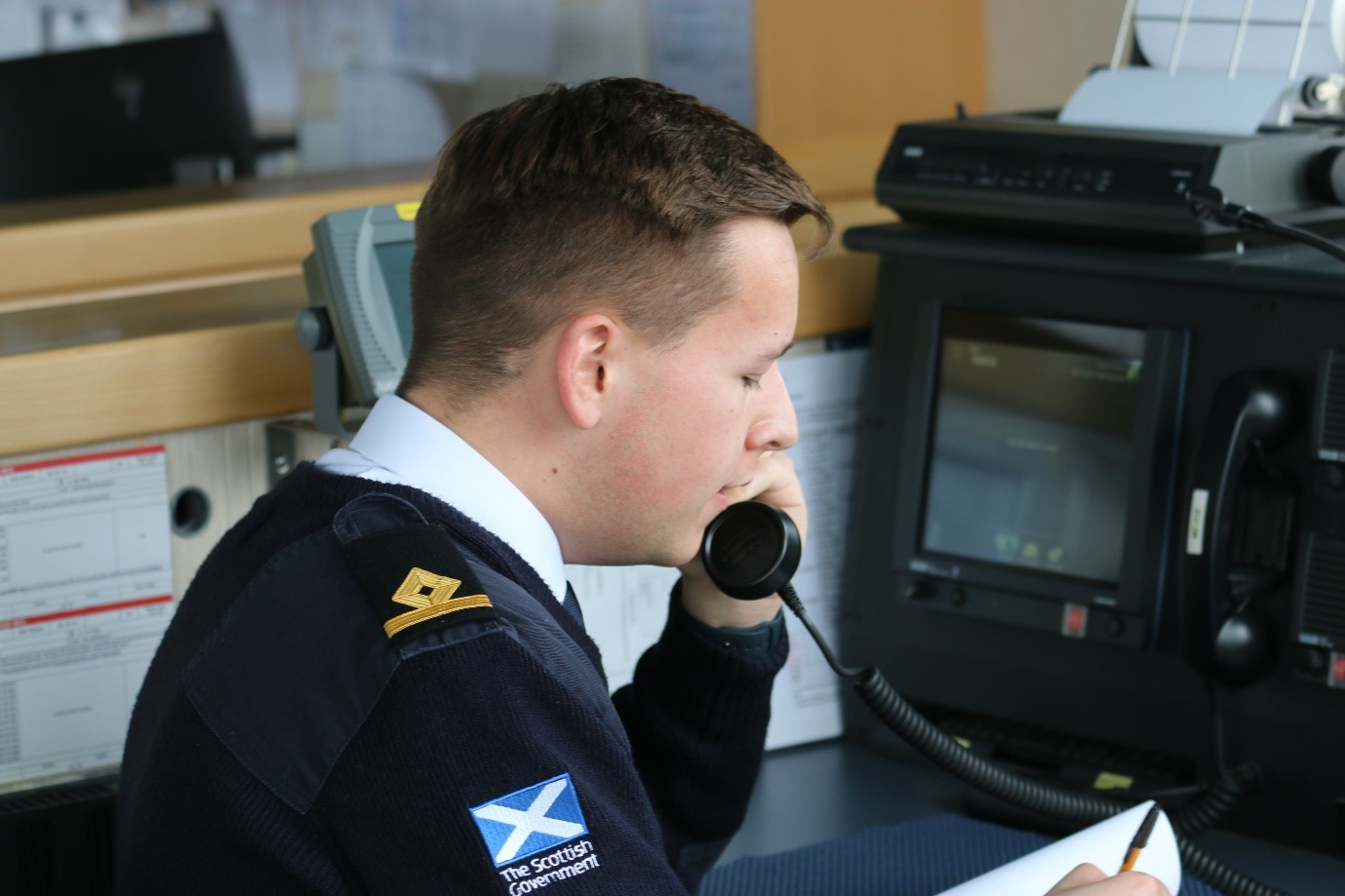Marine
A Peek at Seaspeak Marine Language by Liam Dawson
April 24, 2023 by Marine Scotland Communications 1 Comment | Category Marine Directorate general, Marine Environment
The Marine Scotland Directorate of the Scottish Government has statutory and regulatory responsibilities to make sure the fishing industry is complying with regulations for safety, marine conservation, and sustainable use of our seas. We have a number of marine vessels (MVs) and surveillance aircraft around Scotland to maintain protection. This includes the health and safety of our colleagues and stakeholders on board support assets in hostile environments such as the North Sea.
Commanding Officer, Liam Dawson provides some insight into what an offshore marine incident scenario is like and how using ‘Seaspeak’, a shared marine language can save lives:
“Mayday, mayday, mayday; All ships, all ships, all ships…”
To be a sailor, and to hear these fateful words over a radio is a call to action. A ship, somewhere within fifty or so nautical miles of your location is in distress and could be in need of immediate assistance. In practical terms, it’s time to grab a pen…
“…This is MV Seaspeak, MV Seaspeak, MV Seaspeak. Call sign Five, Oscar, Charlie, Mike, Seven. MMSI number Two, three, five, zero, nine, three, eight, one…”
Our pen is writing furiously. There is no doubt who it is we are listening to (MV Seaspeak).
“In position 58° 09.4’ North. 009° 46.2’ West.”
A quick calculation. That’s thirty miles away. The lookout telephones the captain as we continue to write.
“Ship has collided with unknown object. Hull has been breached. We are taking on water. We require immediate assistance.”
And then the radio falls silent.
Another voice. A voice of hope.
“Mayday, MV Seaspeak, MV Seaspeak, MV Seaspeak. This is Stornoway Coastguard, Stornoway Coastguard, Stornoway Coastguard. Received Mayday. Question. How many persons on board?”
Our Captain is now on the bridge. “Engines, full ahead!” he calls “Helmsman on the wheel! Hard to starboard… ease to ten… midships… steady zero, eight , two degrees!”
For the next several minutes, as the sea bubbles in our wake, Stornoway coastguard will co-ordinate a rescue attempt from a tiny radio room many nautical miles away. They will communicate with MV Seaspeak. They will talk to us. They will talk to a Norwegian fish farm boat some 15 miles distant. They will talk to a Lithuanian sea Captain aboard a small coastal tanker. They will talk to their Gaelic-speaking friends aboard the local lifeboat, but the language they will use, the language they always use, will be Maritime English. Unusually, whether the coastguard station was in Stornoway, Senegal, or Sri Lanka the Standard Marine Communication Phrases, or ‘Seaspeak’ would be the same.
Seaspeak consists of a volume of words and phrases, based mainly on English, that assist multinational seafarers to speak safely and concisely. It places an important onus on those who speak English as a first language to talk plainly and it gives those who do not speak English fluently the means to be understood. Although the internationally accepted use of Maritime English can be traced all the way back to the 18th Century, the need for a simpler, more standardised vocabulary became apparent following a series of shipping disasters in the 1980’s. It came into official use during an international maritime convention in 1995.
Bound by the same convention, the Lithuanian sea Captain from our mayday story would still be demanding turns to starboard from the Liberian helmsman, he would likewise be requesting his engines be set to full ahead. In this way, precious minutes are saved. The English language, on English language day (23 April), has acted as lifesaver.



The author’s use of a real-life incident scenario adds to the gravity of the situation and underscores the need for a standardized language for efficient communication. Overall, this article gives viewers a better appreciation for the complexity of the fishing industry and the efforts taken to ensure safety and sustainability in our seas.
all about Ship